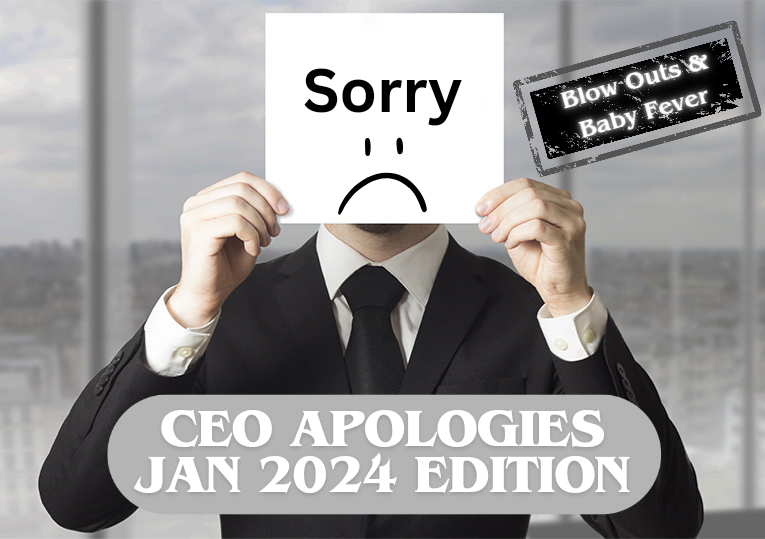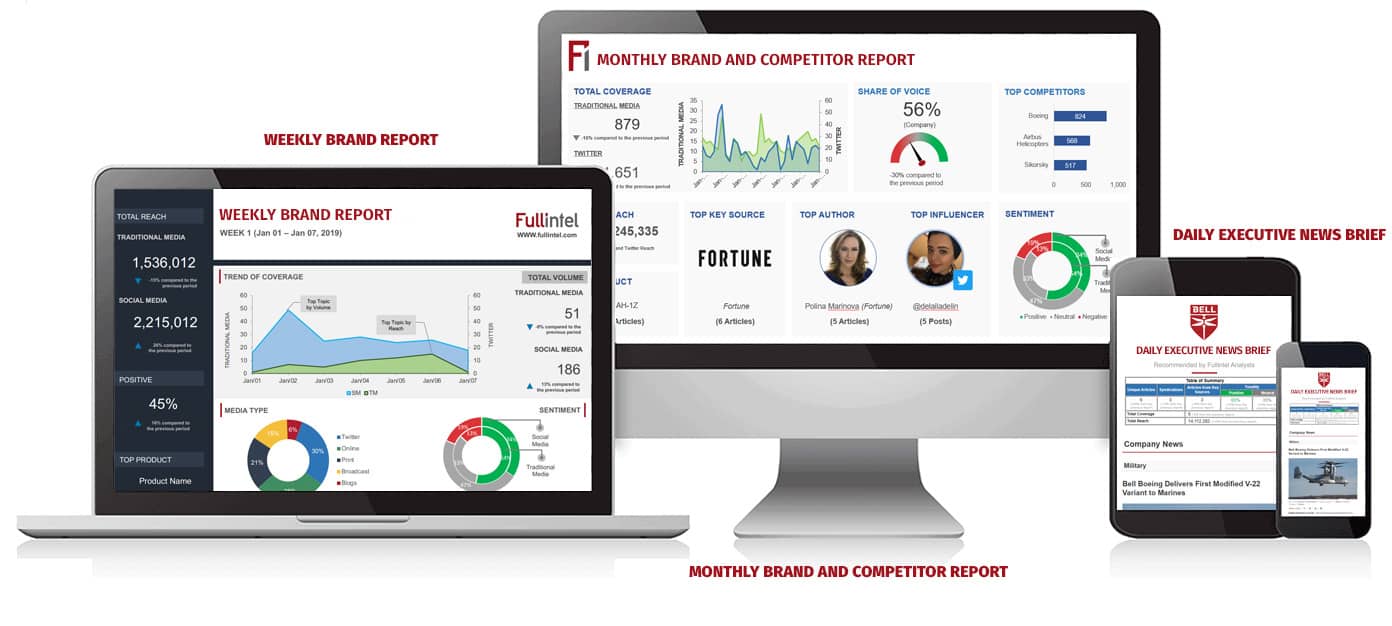CEO Apologies are a powerful way to understand an issue, and interest groups. Monthly, Fullintel’s Head of Product scrubs the internet for interesting apologies and brings them with his insights. In this edition of our monthly CEO apologies round-up, we look at Meta, Boeing, Air Canada and Kyte Baby. Trust is built and lost in these key moments: a great apology can turn the tide back in your brand’s favour, but one lacking in sincerity or not backed up by concrete action can make matters worse.

Meta Leader Meets Families Who Say Zuckerberg Has Blood on His Hands
Mark Zuckerberg had to apologize in real life to families during a Senate Judiciary hearing on Online Child Sexual Exploitation. The moment captured on CSPAN for time immemorial displayed empathy from someone who has been characterized as lacking it entirely.
Still, it’s one thing to stand in front of a committee hearing with cameras rolling, and another to make material changes to Meta’s products to better protect children.
“I’m sorry for everything you’ve all gone through…” Zuckerberg said, replying to a direct question for a senator Josh Hawley who badgered him from the panel. “It’s terrible. No one should have to go through the things that your families have suffered.”
In other off-mic comments caught on the hearing’s livestream, he said, “This is why we invest so much and are going to continue doing industry-leading efforts to make sure that no one has to go through the types of things that your families have had to suffer.”
Lesson:
While Zuckerberg’s apology may be too little and too late for some, hearing him say “I’m sorry” must be a relief for others. How and whether those words will come back to haunt the Meta CEO in relation to an upcoming federal lawsuit brought by a plurality of U.S. states is an open question. When you run the largest set of online communities in the world, listening to those who have been hurt by that community is paramount.
Boeing’s Big Blow Out
Boeing’s water boils again! It feels repetitive at this point to say that Boeing’s commercial airline division has faced challenges, but when a door-sized hole blew open mid-flight on an Alaska Airlines flight, the media and regulators had to call out Boeing’s safety record yet again.
Not long ago, Boeing’s entire 737 Max fleet was grounded due to a string of deadly crashes related to poorly developed software, gaps in pilot training, and issues with reporting to the Federal Aviation Administration (FAA). The Alaska Airlines incident is different, but on the same plane built by the same company. Lightning shouldn’t strike the same place several times in a handful of years.
What Boeing CEO Dave Calhoun said in a memo to staff:
“We caused the problem, and we understand that…We have much to prove to earn our stakeholders’ confidence,” Calhoun wrote. “There is no message or slogan to do that. It will take transparency and demonstrated action — that starts with each of us along with a commitment to listening to each other and speaking up.”
Lesson:
When people’s lives are on the line, and an entire industry is watching, apologies are hollow unless they lead to concrete changes in how the manufacturer operates. Fool me once, shame on the business, fool me twice, shame on the regulator, fool me 43 times in multiple instances – well, maybe it is time to go back to the drawing board entirely.
Air Canada Taking Action on a Past Apology
Sometimes words aren’t enough. When a man with cerebral palsy tried to off-board from an Air Canada jet in 2023, crews made him crawl down the stairs because they lacked the correct equipment to assist the man. At the time, Air Canada’s CEO apologized and promised to accelerate the airline’s accessibility programming.
This year, Air Canada took action, becoming the first North American airline to join the Hidden Disabilities Sunflower program, enhancing assistance for travellers with non-visible disabilities.
“Air Canada recognizes the challenges customers with disabilities encounter when they fly and accepts its responsibility to provide convenient and consistent service so that flying with us becomes easier. Sometimes we do not meet this commitment, for which we offer a sincere apology,” CEO Michael Rousseau wrote in a statement. “As our customers with disabilities tell us, the most important thing is that we continuously improve in the future.”
What Air Canada did:
To start with, it announced in November 2023 that it was investing to ensure certain types of equipment were stored in airplane cabins. Tom Stevens, Air Canada’s VP of customer experience, told CBC that:
“We know we need to get accessible travel right 100 percent of the time. What we’ve announced today is the first step on this journey,” he said. “We know even a single service failure is a service failure too many.”
Stevens said Air Canada is “accelerating the first step of measures, which we think will get at the vast majority of situations.”
Lesson:
By taking concrete actions, apologizing, and committing to future efforts, Air Canada showed leadership in taking accountability. Following that up, being the first out of the gate with a new program relating to hidden disabilities shows follow-through. Actions speak louder than words.
Kyte Baby and Bamboo Moms
We’re going to refrain from commenting on the irony of the company’s name here, but as a new father to a baby born a bit earlier than expected, hearing about an employer firing a new mother for spending time with their baby in the neonatal intensive care unit (NICU) is appalling. Well, it turns out that’s exactly what Kyte Baby CEO Ying Liu did to an employee with an adopted baby.
The issue itself was bad enough, but Liu’s scripted apology fell flat like a lead balloon. TikTok users subsequently annihilated the executive, which forced a second apology (this time more ad hoc).
What the CEO said:
Apology 1:
“We treat biological and non-biological parents equally,” Liu said. “Through my personal and professional experiences, I have the utmost respect for babies, families, and the adoption community.”
Apology 2:
“Sincerely, what went wrong is how we treated Marissa and I’m the one who made the decision to veto her request to go remote as she stays in the NICU to take care of her adopted baby. When I think back, that was a terrible decision,” Liu said.
Lesson: Don’t poop where you eat, and don’t try to pull the wool over the eyes of the audience on TikTok. It is a savage jungle out there, and a bad apology to an enraged community or interest group can do more damage than good.
Don’t regret your last public statement. Think through who has been hurt, and how they’ve been affected, and identify clearly where and how your team, or your personally, has contributed to that harm. Be real, be clear, and whatever you do, don’t lie.
Want to understand how your words affect broader audiences and how to measure the impact? Join Fullintel’s Head of Insights Angela Dwyer for a Masterclass: Measurement Research, Frameworks and Metrics, on Mar 13, 2024, at 1:00 p.m. EST.


